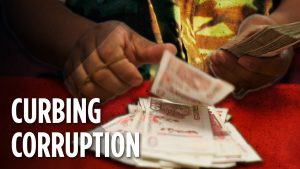This Spring, 2016, the Blum Center will be offering four new courses in the Global Poverty and Practice undergraduate minor, and the Development Engineering graduate minor.
DEVENG 290, The Syrian Refugee Crisis
Instructor: Kate Jastram
Course meets Mon-Wed, 3-4:30, Blum Hall 330
This course will examine the challenges facing Syrian refugees from a multidisciplinary perspective, asking questions about international law, State responsibility, the role of development and information technology, and the impact of gender and age on the protection needs of the refugees. We will use a mixture of lecture/discussion and in-class exercises to explore these themes, as well as others suggested by student interest.
GPP 140, Human Trafficking and Modern Slavery
Instructor: Siddharth Kara
Course meets Thurs, 2-5pm
This course will examine the various typologies of slave-like labor exploitation that persist in the world today – human trafficking, bonded labor, forced labor, the worst forms of child labor, and others. Each of these modes of severe labor exploitation will be analyzed, as well as the legal, policy, and civil society responses to the offences. The myriad forces that promote human trafficking will be investigated, including similarities and differences from one region, industry, or typology to another. The course will pay particular focus on the economic, cultural, historic, religious, and gender-based facets of modern slavery.
GPP 150, Engineering Social Justice
Instructor: Khalid Kadir
Course meets Mon, 2-5pm, Blum Hall B100A/B
Technology is often presented as the solution to social justice problems, including poverty, hunger, climate change, etc. In such narratives, technology is presented as a way to achieve social justice while avoiding struggles over power, distribution of resources, and historical accountability. In this seminar, we will attempt to unpack this narrative by exploring the complex relationship between engineering, technology, and poverty. Rather than focusing on narrowly construed quantitative measures of the impact of specific technologies upon poverty, we will attempt to understand the relationship between poverty experts – specifically, those who are focused on applying technology to solve issues related to poverty and social justice – and the objects of their interventions – impoverished, under-served, and socially marginalized individuals and communities.


